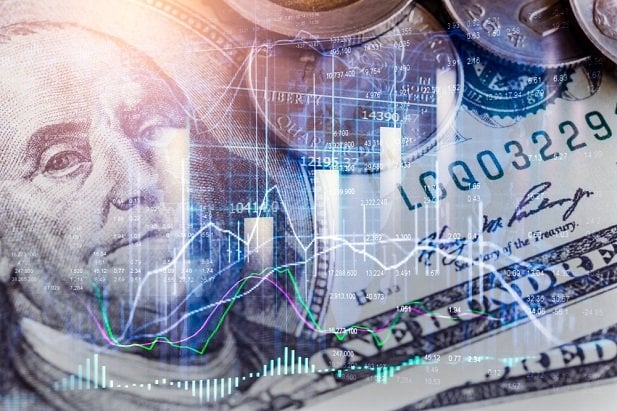Curt Long said a strong jobs report shows resilience despite the Fed’s escalation in interest rates.
 Source: Shutterstock.
Source: Shutterstock.
NAFCU Chief Economist Curt Long said Friday the continued strength in the job market has increased the odds the nation will dodge a recession this year.
The U.S. Bureau of Labor Statistics reported Friday there were 153.7 million seasonally adjusted jobs in December, an increase of 223,000, or 0.1%, from November and up 3% from a year earlier.
The unemployment rate was 3.5% in December, down from 3.6% in November and 3.9% in December 2021. Long said December’s rate was the lowest in more than 50 years, while the labor force participation rate rose slightly.
Seasonally adjusted average hourly earnings were $32.82 in December, up 0.3% from November and up 4.6% from a year ago, a slightly lower rate of increase from previous months.
 Curt Long
Curt Long
“This is an unambiguously positive report that has the potential to set us on a path toward a recession free 2023,” Long said. “The odds of a soft landing are much improved after this report.”
Long wouldn’t say in an interview with CU Times what those odds might be, but he said his outlook is generally brighter than others. Even before the report, he was forecasting the U.S. economy would grow 1.5% this year — tepid, but much better than the 0.5% expected by members of the Federal Open Market Committee at their December meeting.
The FOMC outlook anticipates a mild recession, or at best, zero growth, Long said.
Long said a mild recession is “certainly a distinct possibility,” but he also noted that while the FOMC raised the federal funds rate from near zero at the end of 2021 to 4.5% in December 2022 to help pull inflation down to its 2% goal, the nation’s unemployment rate went from 3.9% in December 2021 to 3.5% in December 2022.
“If we can continue that trend and get inflation to really turn the corner and start coming back to where the Fed wants to get it, then maybe we can do that without a recession and a bunch of joblessness.”
Economists at the Mortgage Bankers Association began predicting last October that the U.S. would enter a recession in the first half of 2023.
On Friday, MBA Chief Economist Mike Fratantoni said the only sign of economic softness in the jobs report was the slower pace of wage growth. “The consistent slowing in the pace of wage growth may reflect employer caution as other data clearly signal a weaker economy in 2023.”
 Mike Fratantoni
Mike Fratantoni
“Slower wage growth should also be reflected in further reductions in the rate of inflation, as businesses will have less cause to push prices up to pay for higher wages. Ultimately, this should result in inflation dropping back to the Federal Reserve’s 2% target,” he said.
But Fratantoni said the report showed employers were still hiring.
“Although there are an increasing number of high-profile layoffs, particularly in the technology sector and also in the mortgage industry, hiring in other sectors of the economy are more than offsetting these on net,” he said. “Additionally, November data showed that there were still more than 10 million job openings in the economy.”
Long and Fratantoni expect the Fed will raise rates 25 basis points at their next meeting Jan. 31-Feb. 1. However, if the December inflation report to be released Jan. 12 is worse than expected, Long said the Fed might raise rates 50 basis points.
CUNA Senior Economist Dawit Kebede said Friday’s jobs report should give the Fed more confidence that the economy won’t suffer from a wage-price spiral.
 Dawit Kebede
Dawit Kebede
“The average hourly earnings increased by 0.3% — a slowdown from previous months,” Kebede said. The monthly rate is the equivalent of an annualized rate of 3.6% growth, compared with year-ago rates that have been consistently at or above 5% in previous reports.
“This report is encouraging for the Federal Reserve, which was expecting a slack in the labor market, to bring inflation down to its target level,” Kebede said. “The rate of job increases is slowing down. Big tech firms are announcing layoffs which will lead to further cooling of the labor market. The wage increase pressure on inflation is also easing.”
Comments
Post a Comment
Please no profanity or political comments.